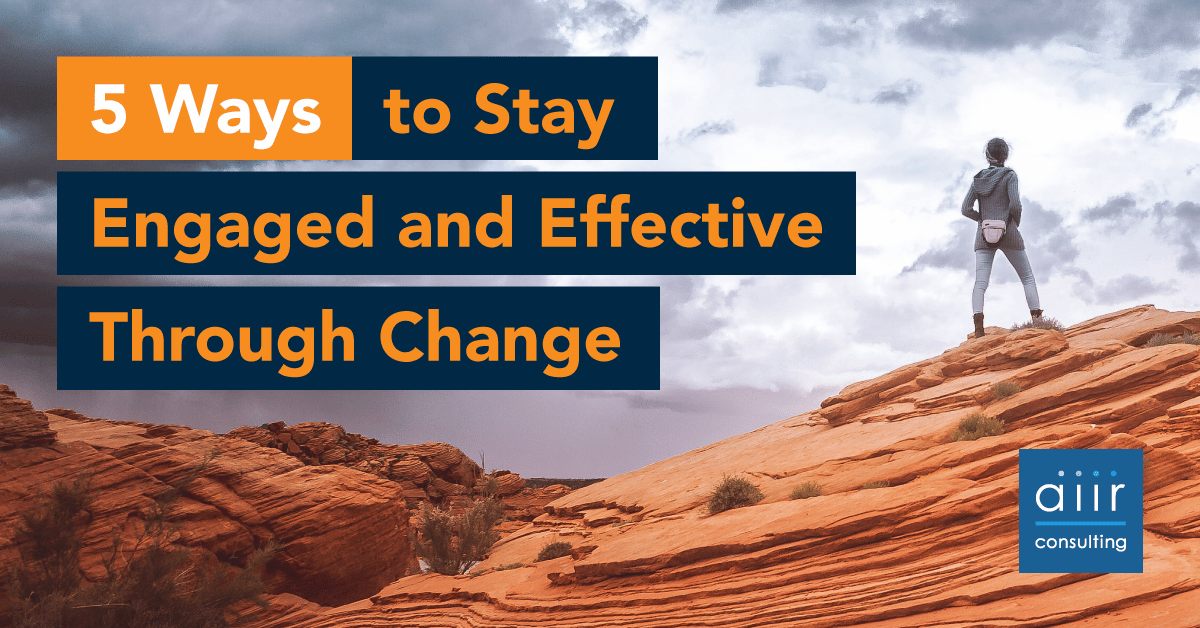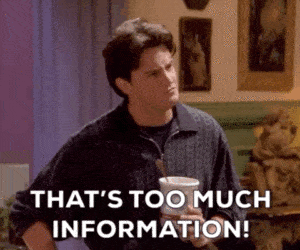
Feeling the Burn(out)?
August 26, 2022
When we asked 55 of the world’s top executive coaches about the biggest challenges their clients would face in 2019, they answered resoundingly that leaders would struggle to cope with the speed of change and the constant chaos it causes.
“I was astounded by the level of chaos, noise, and disorganization I experienced at the highest organizational levels. Every leader that I worked with last year was in full-on reactive mode most of the year.”
Bob Kinnison | AIIR Dallas
What wasn’t clear at the time was the extent to which constant change was taking a toll on leaders.
850 chief executives at public companies turned over as of July 2019, up 17% from the same period last year. Gallup found that more than two-thirds of workers report feeling burned out, with managers reporting more stress and burnout, worse work-life balance, and worse physical health than members of their teams.
Clearly, the level of stress leaders are experiencing is not sustainable. While the pace of change is unlikely to slow, there are some techniques you can use to cope with the chaos. Here are five techniques from top executive coaches to deal with change and drive results.
1. Get Gritty
Teddy Rosevelt said that the only person who never makes mistakes is the person who never does anything.
Legendary heavyweight boxer Mike Tyson said, “Everyone has a plan until they get punched in the mouth.”
In the current business environment, leaders will experience setbacks more and more frequently than ever. And when they do, it can feel like one of Tyson’s legendary uppercuts.
To prevent these setbacks from K.O.ing your career, executive coach Charlie D’Amico (AIIR | Atlanta) says you should focus on developing “a different type of skills — agility, resilience, and risk-taking.”
Countless articles have been written about the importance of resilience, or grit — the ability to learn from and bounce back after a setback or failure. Studies have shown that resilience accounts for 31% variance in life satisfaction. In other words, people who are better at learning from their failures and then moving on are, generally, happier.
To build resilience:
- Increase self-awareness. Everyone reacts to failure differently. Understanding how you react will help you regulate your emotions rather than being derailed by them.
- Solicit feedback. Understanding your mistakes is the key to not repeating them. Take the time to consistently gather and internalize feedback from your superiors, peers, and employees.
- Embrace failure as a tool. Agile leadership requires taking risks, and that means there will be mistakes made along the way. Embrace setbacks as both necessary for agility and gems for learning.
2. Focus
“Leaders at all levels struggle with the ability to filter their workstreams and focus on long-term challenges outside of the fire-drill emergencies of the day,” said executive coach Bob Kinnison (AIIR | Dallas).
When faced with daily distractions, it can be hard to see the forest for the trees. Take a moment to evaluate the challenges in front of you. What is essential to you and your organization?

Of course, staying focused is easier said than done. Studies show leaders are bombarded by inputs, from Slack messages and emails to in-person meetings. Many spend more than half of their workday receiving and managing information, with 62% admitting that the quality of their work suffers because they can’t sort through the information they receive.
Fortunately, there’s an app for that. Although technology has in many ways exacerbated the problem of noise and complexity (how many methods of communication are you beholden to at your office?), a recent wave of productivity apps like Focuster, Focus, and One Big Thing can help you simplify and focus your day.
3. Unplug
“I often ask executives at start-ups about the last time they did something for themselves, and all I get are blank states,” said executive coach Dr. Justin Zamora (AIIR | Salt Lake City). “And, I’ve learned that the more leaders fight me when I recommend self-care, the more ineffective they tend to be.”
Under increased pressure, the tendency for many leaders is to put in increasingly long hours at the office.
Neuroscience has shown this to be counterproductive. The brain depends on downtime to process information. In a VUCA environment, this can be exceedingly difficult. The already faint line between work and home life can disappear amid a never ending, overflowing to-do list.
Dr. Zamora suggests that, rather than aiming for an impossible work-life balance, busy leaders should focus on what Jeff Bezos called work-life integration – recognizing that taking moments within each day to meditate, take a nap, take a walk or do nothing can actually help increase productivity, replenish attention span, bolster memory recall and foster creativity.
4. Check in
Chaos and change take a toll on your employees, too. The turmoil that characterized much of the past decade has eroded employees trust in their leaders. Only 37% of employees think their leaders are credible, and just over half of employees believe that their company is loyal to them.
“One of the biggest risks for leaders is that they will focus on driving results without addressing the human side of the work they do,” said executive coach Therese Heeg (AIIR | Milwaukee).
Don’t underestimate the impact of something as simple as taking a moment to check in with your employees and have a conversation: “Hey, I know things are crazy, and I appreciate everything you have been doing. Where can I do better? How can I help you?”
“I’ve seen a need to continuously invest in the wellbeing of our talent in order for them to bring their best selves to work,” said Eugenia Liakaris, Assistant Dean of the NYU Wasserman Center for Career Development at the School of Professional Studies. “By implementing an internal coaching culture along with intentional shifts in priorities, goals, and understanding of individual and team needs, we are ensuring trust is built on a daily basis and experiencing significant ROI.”
5. Create Meaning
Constant change and upheaval can leave you feeling rudderless, discouraged and disengaged. Amid stress and uncertainty, leaders benefit from a clear understanding of their North star — the values and intentions that guide their work.
Clarifying your core values and personal vision takes self examination and self-awareness. Assessments can help you identify the motives and values that get you out of bed in the morning.
Armed with this self-awareness, you can engage in what Amy Wrzesniewski, professor of Organizational Behavior at the Yale School of Management, coined as job crafting — structuring your role to reflect your personal values. Wrzesniewski’s work has shown that job crafting can foster engagement, job satisfaction, and resilience.
Going Through Changes
Unfortunately, the pace of change is unlikely to slow. From global social and geopolitical upheaval and hints of a global recession to advancing technology and accelerating shifts in the consumer landscape, chaos is the new constant.
Although the above techniques can help leaders survive, combined with the systematic support of executive coaching, they can help leaders build the resilience, adaptability, insight, and buoyancy they need to thrive.
How can leaders prepare for the challenges that come with constant change?
Are You Ready To Shape A Better Future Together?
Partner with AIIR to empower your leaders and ascend into the future.